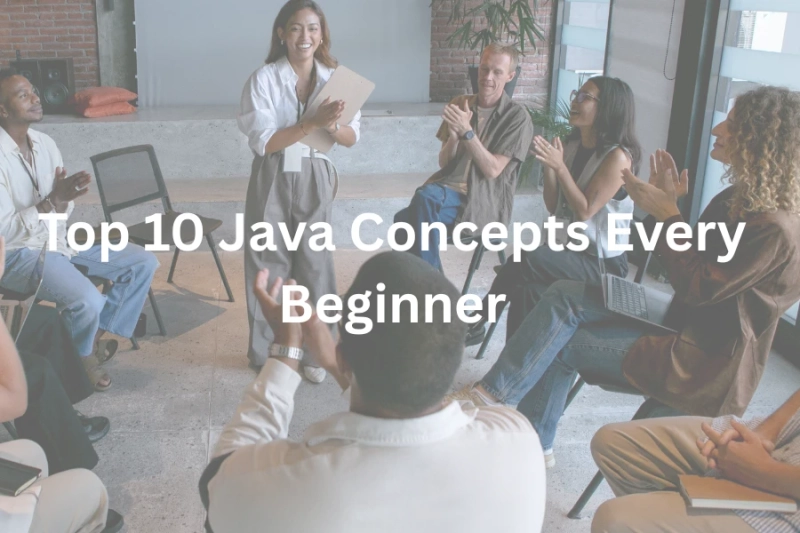Knowing the fundamentals of Java is essential whether you're a student, recent graduate, or someone wishing to transition into the software development industry. The top ten Java concepts that every beginner should understand are covered in this blog, particularly if you intend to take a Java course in Chennai or learn on your own.
1. Java Basics and Syntax
- Java class structure
- Main method
- Data types (int, float, char, boolean, etc.)
- Variables and constants
- Basic operators and expressions
2. Object-Oriented Programming (OOP)
Understanding the object-oriented programming (OOP) concepts of Java is crucial. The four pillars of OOP are:
- Encapsulation – Bundling data and methods that operate on the data.
- Abstraction – Hiding complex implementation details.
- Inheritance – Acquiring properties from a parent class.
- Polymorphism – Performing the same action in different ways.
3. Classes and Objects
Everything in Java revolves around classes and objects. A class is a blueprint, while an object is an instance of a class.
class Car {
String color;
void drive() {
System.out.println("Car is driving");
}
}
4. Control Flow Statements
Control flow refers to how the program proceeds through instructions. Java provides:
- if, else, and switch
- for, while, and do-while loops
- break and continue
5. Arrays and Strings
Both single-dimensional and multi-dimensional arrays, which are used for data manipulation and storage, are supported by Java.
- Arrays: int[] numbers = {1, 2, 3};
- Strings: String name = "Java";
In Java, strings are immutable and have a wealth of built-in methods, such as.substring(),.length(),.equals(), and others.
6. Exception Handling
To build robust applications, Java provides exception handling mechanisms using:
- try, catch, finally
- throw and throws
try {
int result = 10 / 0;
} catch (ArithmeticException e) {
System.out.println("Cannot divide by zero.");
}
7. Java Collections Framework
Collections serve the purpose of efficiently storing, retrieving, and manipulating data. Important interfaces and classes include:
- List (ArrayList, LinkedList)
- Set (HashSet, TreeSet)
- Map (HashMap, TreeMap)+
8. Inheritance and Interfaces
While inheritance allows one class to inherit from another, interfaces in Java define a contract that classes must follow.
- extends is used for class inheritance.
- implements is used when a class adopts an interface.
9. Multithreading
Java enables multithreading, permitting multiple threads to execute simultaneously. This is useful for applications like:
- Real-time games
- Background tasks
- Concurrent file processing
Basics include:
- Creating threads using the Thread class or Runnable interface.
- Synchronization and thread lifecycle management.
Although this is a more advanced subject, it is beneficial to become acquainted with the fundamentals of multithreading at an early stage.
10. Java Input and Output (I/O)
Java provides the java.io and java.nio packages to handle input and output operations. You’ll learn about:
- Reading from and writing to files
- BufferedReader, FileReader, Scanner
- File handling with exception management
Real-time applications often require reading data from files, databases, or user input making this concept very practical.
Conclusion
Gaining proficiency in the ten essential Java concepts outlined in this blog will not only prepare you for coding interviews but also instill the confidence needed to develop Java applications independently. Although online tutorials and self-directed learning are beneficial, they cannot compare to the organized education provided by a Java training program in Chennai, particularly when supplemented with hands-on project experience and expert mentorship.


